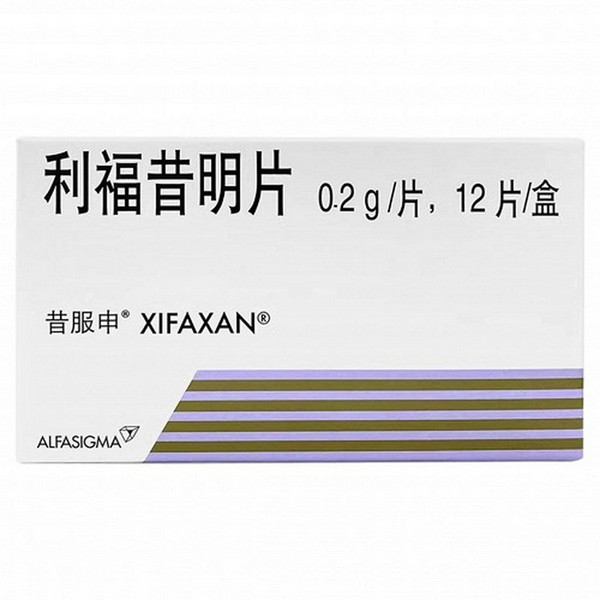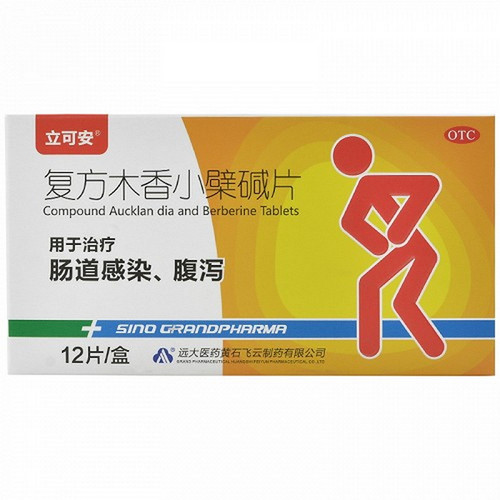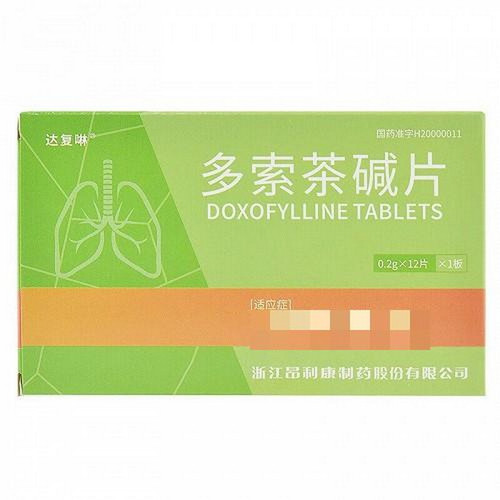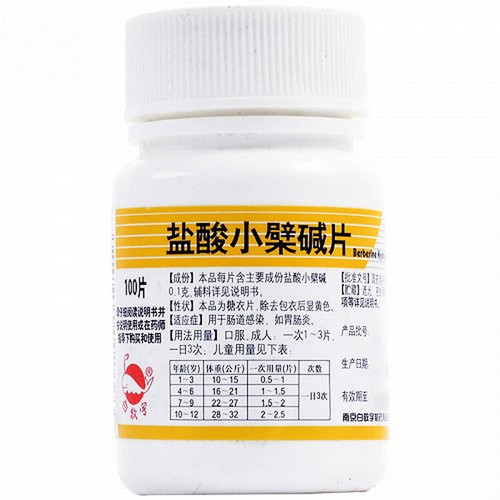Product Overview
[Drug Name]
Generic Name: Rifaximin Tablets
Trade Name: Xifushen Rifaximin Tablets 0.2g*12 Tablets
Pinyin Full Code: XiFuShen LiFuXiMingPian 0.2g*12 Tablets
[Main Ingredients]
The main ingredient of this product is rifaximin. Chemical Name: 4-deoxy-4'-methylpyridino[1'2'-1,2]-imidazo[5,4-cyclo]rifamycin SV, α-crystalline form. Molecular Formula: C43H51N3011. Molecular Weight: 785.89
[Properties]
This product is a round, biconvex, pink, film-coated tablet with a diameter of 10 mm.
[Indications/Main Functions]
Intestinal infections caused by pathogens sensitive to rifaximin (including acute and chronic intestinal infections, diarrheal syndrome, summer diarrhea, traveler's diarrhea, and enteroconjunctivitis); prevention of infectious complications before and after gastrointestinal surgery; and adjunctive treatment of hyperammonemia (hepatic encephalopathy).
[Specifications]
0.2g*12 tablets
[Dosage and Administration]
Intestinal Infection - Recommended Dose: Adults and children 12 years and older: Take one tablet orally four times daily, every six hours. Preoperative and Postoperative Prophylaxis of Infection - Recommended Dose: Adults and children 12 years and older: Take two tablets orally twice daily, every 12 hours. Adjunctive Treatment of Hyperammonemia (Hepatic Encephalopathy) - Recommended Dose: Adults and children 12 years and older: Take two tablets orally three times daily, every eight hours. This product can be taken with or without food. The dose and frequency of use can be adjusted according to a physician's instructions. Unless otherwise directed by a physician, each course of treatment should not exceed seven days. Hepatic Impairment: No dose adjustment is required for patients with hepatic insufficiency (see [Precautions] and [Pharmacokinetics]). Renal Impairment: Although no dose adjustment is expected, use with caution in patients with renal impairment (see [Pharmacokinetics]).
[Adverse Reactions]
See the package insert for details.
[Contraindications]
Allergies to rifaximin, rifamycins, or any of the excipients. Patients with intestinal obstruction, even partial obstruction, or severe intestinal ulcers. Patients with diarrhea complicated by fever or blood in the stool should not take rifaximin.
[Precautions]
1. With long-term, high-dose use or when the intestinal mucosa is damaged, a very small amount (less than 1%) may be absorbed, resulting in pink urine. This is due to the orange-red color of the active ingredient, rifaximin, like other rifamycin antibiotics. 2. If microorganisms non-susceptible to antibiotics are present, treatment should be interrupted and other appropriate treatment measures instituted. 3. Clinical data show that rifaximin is ineffective for the treatment of intestinal infections caused by invasive enteric pathogens such as Campylobacter jejuni, Salmonella, and Shigella. These infections typically result in diarrhea, fever, blood in the stool, and extremely frequent bowel movements. If symptoms worsen or persist for more than 48 hours, treatment should be discontinued and alternative antibiotic therapy considered. 4. Clostridium difficile-associated diarrhea (CDAD) has been reported with nearly all antimicrobial agents, including rifaximin. The possibility of CDAD and pseudomembranous colitis caused by rifaximin therapy cannot be ruled out. 5. Although no dose adjustment is anticipated for patients with hepatic impairment, rifaximin should be used with caution in patients with severe hepatic impairment. 6. Caution should be exercised when rifaximin is used in combination with P-glycoprotein inhibitors such as cyclosporine. 7. Due to effects on the intestinal flora, the effectiveness of oral estrogen contraceptives may be reduced after taking rifaximin. However, this interaction has not been widely reported. Additional contraceptive measures are recommended, especially if the oral contraceptive contains less than 50 μg of estrogen. 8. Keep out of reach of children. 9. Effects on Driving and Using Machinery: Dizziness and drowsiness have been reported in controlled clinical trials. However, the effects of rifaximin on the ability to drive and use machinery are negligible.






